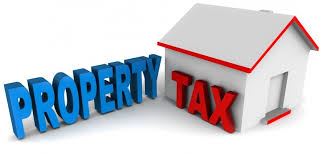
Authored By: Scott W. Dunlap, Esq.
November is here, and hopefully cooler weather is on the way. Thanksgiving is also approaching. And of course, real estate tax bills have now been made available by the tax collectors in most Florida counties (as they say, “two out of three ain’t bad”).
For any homeowners who have a mortgage loan, it may be the case that the mortgage lender is collecting real estate taxes and, therefore, will pay the 2019 real estate tax bill. This will occur by the end of November, so that the maximum 4% early payment discount will be obtained. Even if your lender is to pay the real estate tax bill, the borrower/homeowner is advised, of course, to double check with the tax collector in early December (usually one can double check on-line) to make sure the tax bill has been paid.
Homeowners who do not have a mortgage, or who do not escrow for real estate taxes, have a choice of when to pay real estate taxes. Paying the tax bill in November will mean a 4% discount. Paying by the end of the year will still earn a 3% discount. Of course, paying the real estate taxes by the end of the year is important as well for the federal income tax deduction that is still available (although limited in amount).
Keep in mind that if you closed your purchase recently, you may not receive the 2019 tax bill (i.e., your seller may receive instead), so you will need to pull the bill from your local tax collector’s website.
For those owners who purchased or acquired their Florida, primary residence in 2019, those owners are reminded to presently apply for the homestead exemption even though the homestead exemption will not be valid until 2020. In other words, don’t forget to apply and obtain the homestead exemption, as the benefits are:
In order to qualify for the homestead exemption for a particular residence, the owner, by January 1st of the applicable year, must be a Florida resident, and must own the home (or have the 98 year lease or be the beneficial owner through a trust for example), and the home must be the permanent/primary residence of the owner. The owner must also apply for the homestead exemption, either on-line or in person at the Property Appraiser’s office, on or before March 1st of the year in which the homestead exemption is claimed.
So, in summary, the advice is to make sure the real estate taxes for your home are paid in November or December. And if you are entitled to claim the homestead exemption for a home purchased in 2019, apply now and don’t wait for cooler weather.
Happy Thanksgiving to all!
This blog is intended for informational purposes only and it is not intended to be, nor should it be construed as, legal advice or legal opinion. The reader should not consider this information to be an invitation to an attorney/client relationship, should not rely on information presented here for any purpose, and should always seek the legal advice of counsel in the appropriate jurisdiction.